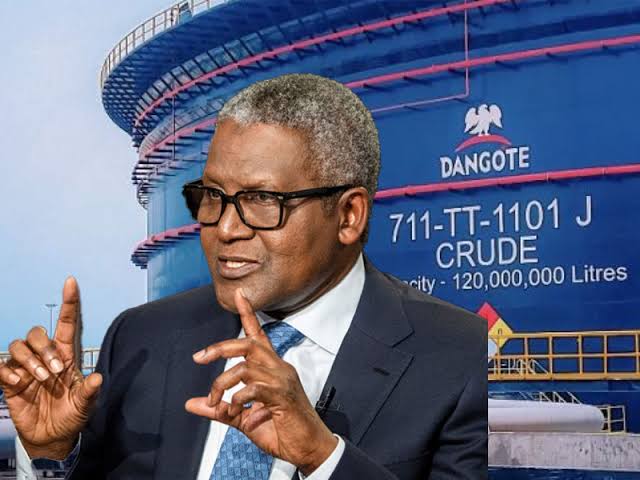The Dangote Refinery has reinstated and redeployed several engineers who were dismissed last month following the industrial crisis involving the company and the Petroleum and Natural Gas Senior Staff Association of Nigeria (PENGASSAN). The move comes as part of ongoing efforts by management to stabilize operations and rebuild confidence within the workforce after weeks of tension that disrupted parts of the refinery’s activities.
According to reports, the redeployed engineers are being sent to various project sites across the country, including Borno, Zamfara, Kano, and Gombe States. The decision to reassign staff, rather than lay them off permanently, is being viewed as a strategic step by the refinery’s management to maintain productivity while addressing labor grievances.
The crisis began when PENGASSAN accused Dangote Refinery of unfair labor practices and arbitrary dismissals, sparking a series of protests and operational slowdowns. The union had claimed that dozens of its members were abruptly terminated without due process, contrary to Nigeria’s labor laws and collective bargaining agreements.
In response, Dangote Industries Limited, which oversees the $20 billion refinery project in Lagos, maintained that the dismissals were due to “operational restructuring” and performance-related issues, not union activity. However, the situation escalated after PENGASSAN issued a strike threat, prompting interventions from both the Ministry of Labour and Employment and the Nigerian Upstream Petroleum Regulatory Commission.
Following several rounds of negotiations, both parties reportedly reached a compromise that allowed for the reinstatement of affected engineers under new deployment terms. Management sources confirmed that reabsorbed staff are being transferred to other Dangote energy and infrastructure projects across Nigeria to “better align skills with current operational needs.”
Industry observers note that the refinery’s decision reflects an attempt to preserve stability at a time when the company is ramping up production and distribution of petroleum products. The 650,000-barrel-per-day refinery, the largest in Africa, has been under close public scrutiny as it prepares to play a critical role in reducing Nigeria’s dependence on imported fuel.
Labor analysts believe the resolution marks an important turning point in the relationship between Dangote management and labor unions. It also signals a broader message to the industry about the importance of dialogue in managing industrial relations, especially in large-scale energy operations.
PENGASSAN, in a brief statement, welcomed the reinstatement but urged the company to adhere strictly to fair labor standards and to improve communication with employees. The union emphasized that the welfare of technical staff is vital to sustaining the refinery’s operational success and national energy goals.
Meanwhile, the refinery’s management stated that redeployed engineers would receive orientation and training to adapt to their new assignments in the northern states. Officials added that the company remains committed to fostering a “productive and inclusive workplace” that prioritizes efficiency, innovation, and employee satisfaction.
As the refinery continues its phased operations, stakeholders will be watching closely to see how effectively the company manages both its workforce and production challenges in the coming months. The Dangote Refinery’s handling of the dispute could set a precedent for labor relations in Nigeria’s growing private energy sector.
The resolution is also expected to reassure investors and government partners who have been monitoring the project’s progress amid fluctuating oil prices and supply chain concerns. With operations now stabilizing, the refinery is poised to continue its crucial role in reshaping Nigeria’s downstream petroleum industry and boosting the nation’s self-sufficiency in fuel production.





